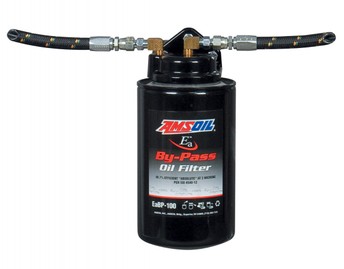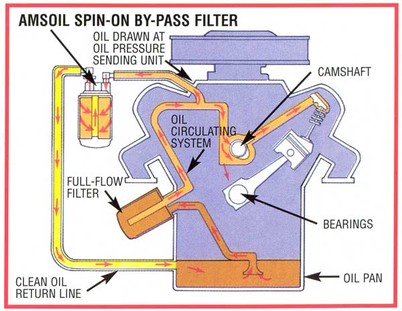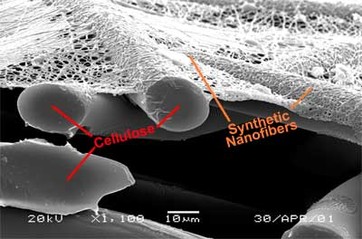Same article as the 10 year old lab efficiency table is this. Worry about particles and wear? Get these. Amsoil says it’s better. Good wishes to all in their life pursuits and challenges now and ahead.
“By-Pass Oil Filtration
By-pass Oil Filtration features a secondary filter with the purpose of eliminating nearly all contaminants from motor oil.
By-pass filters have high capacities and eliminate much smaller particles than full-flow filters, including soot. They reduce engine wear and increase oil volume, but their high efficiencies mean they also have higher restriction and must be used in conjunction with a full-flow filter.
AMSOIL Ea By-pass Oil Filters operate by filtering oil on a "partial-flow" basis. They draw approximately 10 percent of the oil pump's capacity at any one time and trap the extremely small, wear-causing contaminants that full-flow filters can't remove.
By-pass filters have a high pressure differential, causing the oil to flow through them very slowly and allowing for the removal of smaller contaminants. It is called by-pass filtration because the oil flows from the by-pass filter back to the sump and by-passes the engine.
This continual process eventually makes all of the oil analytically clean, reduces long-term wear and can dramatically extend drain intervals.


Because oil must be filtered quickly while removing most of the particles in the oil, the average full flow filter can only trap particles as small as 20 microns. With an efficiency rating of 98.7 percent at 2 microns, AMSOIL Ea By-pass Oil Filter provides the best possible filtration protection against wear and oil degradation.
The superior construction of
AMSOIL Ea By-pass Oil Filters provides better sealing and increased longevity along with superior corrosion resistance. EaBP Filters have a marine powder coated exterior and their zinc-dichromate base plates increase rust protection. They also have a nitrile HNBR gasket and an orange silicone anti-drain valve.
AMSOIL’s high-efficiency by-pass filter element is also a soot removal device.
These filters remove 39 percent of soot contaminants less than one micron. Soot removal efficiency increases approximately 10 to 14 percent when the EaBP Filter is used in conjunction with a standard full-flow filter.
Ea By-Pass Filters use a synthetic/cellulose sandwiched media. The inner layer of the element is composed of a highly efficient cellulose media covered with a full synthetic media outer layer.
AMSOIL Ea By-Pass Oil Filter typically filters all the oil in the system several times an hour. At normal operating RPMs it will filter all of the oil in a typical five quart sump in less than 10 minutes. The continual filtering process eventually makes all the oil analytically clean, reducing long-term wear.
The increased fluid system capacity and filtration life provides improved oil cooling and ensures that equipment constantly runs on clean oil. Engine efficiency is increased, providing extended engine life.
By cleaning the oil so completely, the EaBP Filter not only prolongs engine life but also the life of the oil itself. With the AMSOIL
Ea By-Pass Filter, oil changes can be extended well beyond normal, in many cases virtually indefinitely, depending upon the conditions and severity of use.”
By-Pass Filtration Benefits
- Dramatically Extended Drain Intervals
- Improved Oil Cooling
- Increased Filtration Capacity and Life
- Increased Fluid System Capacity
- Efficient Small Particle and Soot Removal
- Significantly Extended Engine Life
- Equipment Constantly Runs on Clean Oil
- Increased Engine Efficiency
- Remove Particles Less Than One Micron



